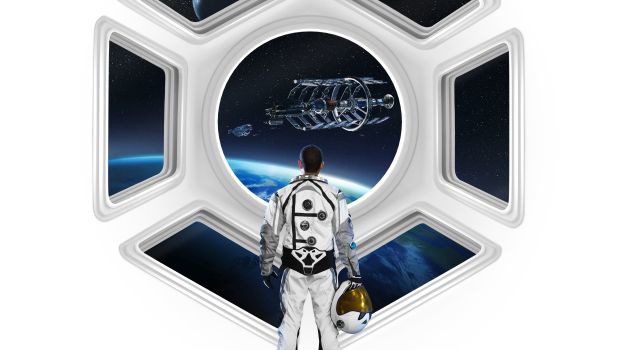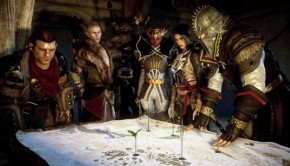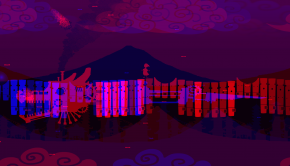Civilization: Beyond Earth: Going Beyond Theme
I don’t remember exactly when I discovered Civilization in college, but once I did, I knew I had a problem. Once I started a new game, it was impossible to stop until it finished, even though a game would take me a brisk six to ten hours to finish. On more than one night, a friend and I stayed up with Civilization 3 until dawn broke, getting wasted, yelling at Gandhi, pushing armies right up against Germany’s border before sending waves of troops marching in to burn down all of their cities. It’s an intoxicating game, and Civilization 4 (and eventually Civilization 5) continued to refine and perfect the “4X” genre that Civilization had founded: explore, exploit, expand, exterminate.
Yet this year, when Beyond Earth was announced, my reaction was tepid. Civilization 5, at launch, had been one of the most unbalanced games I’ve ever played. Yes, it was fun, and yes, it was still compelling, but I only had to play a couple of games at higher difficulty before I was convinced that it needed some more work before it was worth paying attention to. I missed Civilization 4’s launch, but I hear it was much the same. It was just these mechanical imbalances that worried me, though–Beyond Earth’s theme intrigued me. It was a return to the science fiction of Civilization spin-off Alpha Centauri, and I thought that it would bring something new and interesting to the table. Divorcing itself from historical context, Civilization would have a chance to take all of the series’ trademark elements and re-frame them in a new theme which would hopefully have inspired a couple of interesting new mechanical additions.
I never thought that Civilization’s theming mattered much, to be honest. I couldn’t have been more wrong. To explain why, we have to travel through the series in broad strokes.
I. IN THE BEGINNING: MECHANICS AND HISTORY
Civilization is a game where your actions have weight. Every single decision you make has enormous mechanical significance in how it pushes the progress of your empire towards victory. Where to explore, when to cancel trade deals, which armies to move, what to research next–every single individual action makes a difference. The apocryphal quote attributed to Sid Meier is that “a game is a series of interesting decisions” and very few video games distill that down to its very essence like Civilization does. At some point, anyone who has read or talked about Civilization has heard of the “one more turn” phenomenon–where a player has reached a point where no matter what action they take, no matter what they’ve done that turn, they can never reach a stopping point because something better, more interesting, is going to happen next.
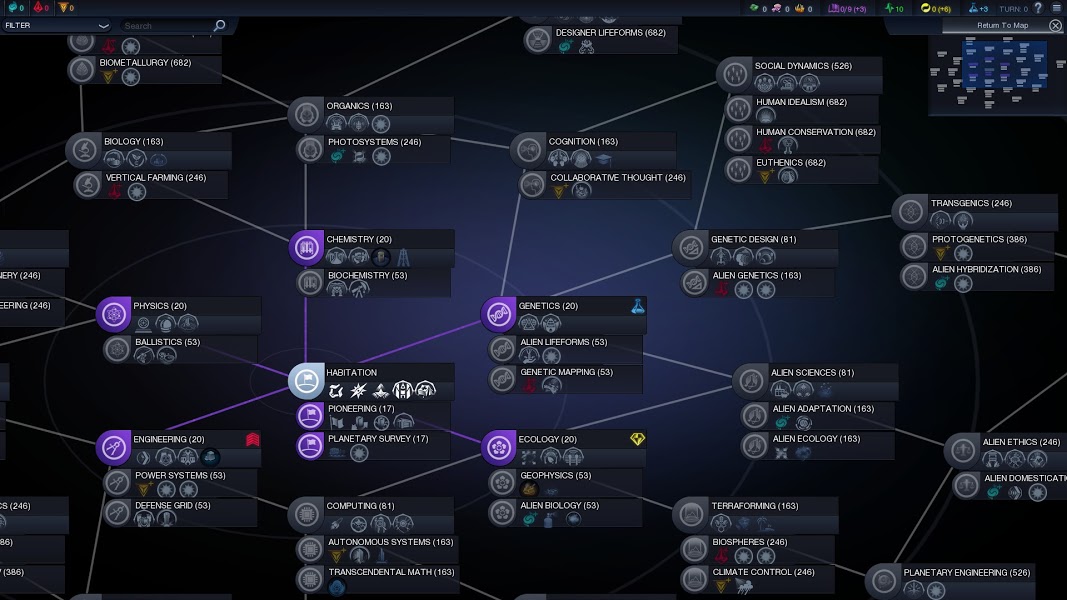 It makes for a rich game, one where beginners can play almost on autopilot and maybe not win but still have fun, understand what they’re doing, form goals. Players learn to understand the machine and better ways to push it forward, until they’re perfecting a state of play. The fact that Civilization is rooted in history is the grounding point which gives new players a basis on which to make their decisions: Everyone knows what “gunpowder” is and why you want it before anyone else. Of course “optics” will improve your naval power, and building a trade post will give you more money. We know what these things are just from our lived experience.
It makes for a rich game, one where beginners can play almost on autopilot and maybe not win but still have fun, understand what they’re doing, form goals. Players learn to understand the machine and better ways to push it forward, until they’re perfecting a state of play. The fact that Civilization is rooted in history is the grounding point which gives new players a basis on which to make their decisions: Everyone knows what “gunpowder” is and why you want it before anyone else. Of course “optics” will improve your naval power, and building a trade post will give you more money. We know what these things are just from our lived experience.
But for some of the random variables that the game introduces to keep things interesting, Civilization might as well be chess. High-level players learn obtuse-seeming strategies and come up with strange ways to organize their playstyle so that they can crush everything, pushing the system to its boundaries. At a certain point of play, the abstractions of the systems come to the forefront, and the trappings of theme are all completely gone. All that really remains of it is the amusement that comes from your Incan empire launching nuclear weapons before the turn of the 18th century to decimate, say, Greece. History is just the bait and the hook: The actual line and rod are the mechanics. At some point you just don’t need to be forced to reel in any longer. Jumping between installments of the series don’t even matter much: You learn the new mechanics, what the new tech tree offers, and let yourself go free of the constraints of history.
II. INTO THE FUTURE
I’ve mentioned Alpha Centauri already. It was a Civilization game, but Firaxis didn’t own the rights to the series at that point–so they renamed it in a way that connected it to the “space race” victory of the Civilization series, where a nation has sent a manned rocket off to a nearby star to search for newly inhabitable worlds.
Alpha Centauri takes place after disagreeing factions on this ship suffer damage to their ark, and crash-land on the nearest inhabitable planet. It provides a great framing device: There is a reason for diplomacy with these other leaders, and a reason why they don’t want to integrate with your society. There’s an immediate connection to our understanding of nation-states that provides the same level of grounding that Civilization’s roots in history do.
Alpha Centauri wants to ground the players in other aspects, as well. It presents the same high-level systems as Civilization: You research, you build. You explore, expand, exploit, exterminate. It’s all in how you do it, especially in how you research and build units, the two ways in which the future that the game represents is almost completely unknowable.
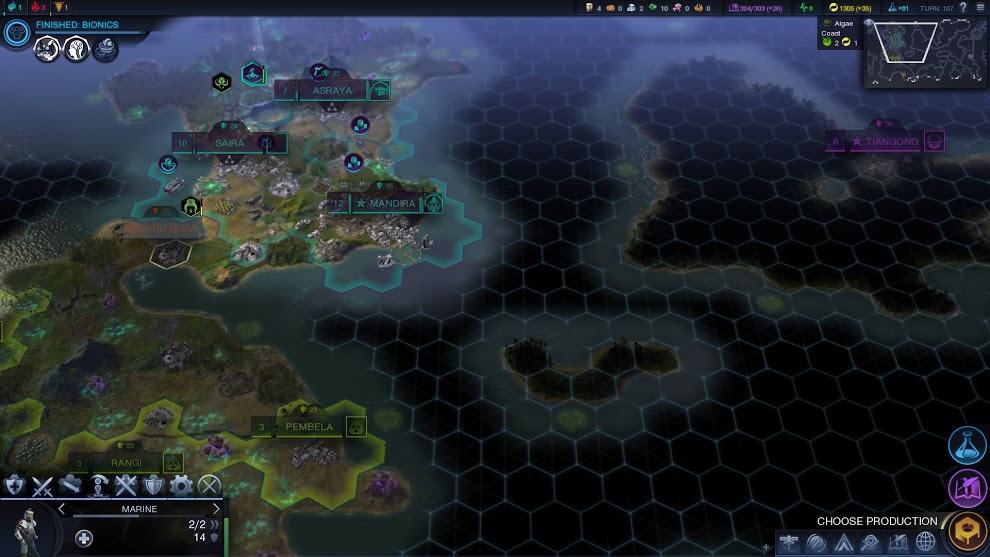 Research is not as guided as in Civilization. Instead there are four paths, each one corresponding to one of the four Xes–you choose one or more, and let the game go. Which technologies you discover don’t quite matter, but they bring you capabilities which are in line with what you would expect. After all, nobody really knows what “Cognitive Processing” is going to give as a benefit, innately. But we all know what it means to “expand,” and the end result is that it gives the same grounding that knowing what optics and gunpowder are. Eventually, if you research “explore” enough, you’ll get better movement on oceans. If you want to learn how to “exterminate,” one day you’ll get the future equivalent of gunpowder.
Research is not as guided as in Civilization. Instead there are four paths, each one corresponding to one of the four Xes–you choose one or more, and let the game go. Which technologies you discover don’t quite matter, but they bring you capabilities which are in line with what you would expect. After all, nobody really knows what “Cognitive Processing” is going to give as a benefit, innately. But we all know what it means to “expand,” and the end result is that it gives the same grounding that knowing what optics and gunpowder are. Eventually, if you research “explore” enough, you’ll get better movement on oceans. If you want to learn how to “exterminate,” one day you’ll get the future equivalent of gunpowder.
Units have a similar lack of guidance, but go in the entire other direction: Instead of pre-built concepts, the game gives you what amounts to a box of Lego and a few instruction manuals containing suggestions of what you might make with them. Technologies unlock new parts; You combine parts to build new units. Think that you should be able to fly a colonist to a new square? Great, do that. Want to have a heavily-armored battleship without ballistics to spearhead a navy? You can do that too. By reducing the cubes that go onto the map to a series of smaller, more comprehensible cubes–representing individual numbers, often with very plain language to relate them to a simple explanatory concept.
We keep coming back to that, giving a player something to ground themselves in.
III. GOING BEYOND EARTH
There is a current trend in science fiction to view the Earth as a dying, inhospitable place, being destroyed by humanity’s endless expansion and exploitation. It seems apt that Beyond Earth and the film Interstellar–also about an expedition into the stars to discover a new home for humanity–came out within weeks of each other and were undoubtedly in active development around the same length of time. It’s pessimism about our uncertain future–so pessimistic that the problems cannot be reversed or resolved, only escaped.
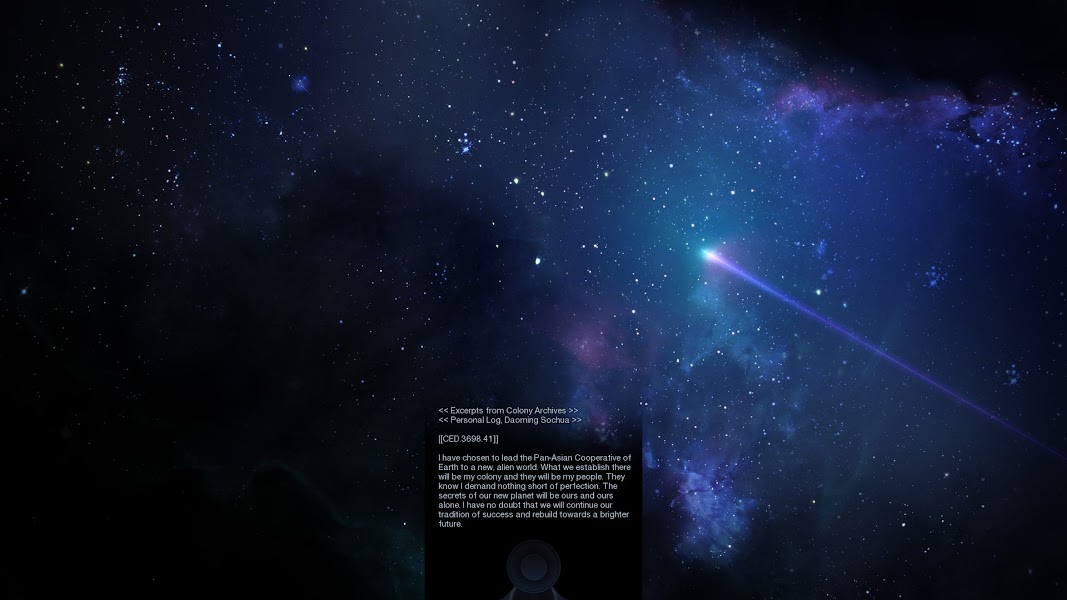 Beyond Earth, like Alpha Centauri, spins off from the “space race” victory, but takes a decidedly different track to it. Rather than your civilization achieving the pinnacle of human scientific thought, it is a desperate attempt to escape a plundered, decimated world that has been paved over and ruined by endless sprawl. Ships are sponsored by nations or corporations, staffed, given some type of equipment for their new colony–with the hope that humanity can somehow survive with that minimal amount of available equipment on their way to the chosen destination.
Beyond Earth, like Alpha Centauri, spins off from the “space race” victory, but takes a decidedly different track to it. Rather than your civilization achieving the pinnacle of human scientific thought, it is a desperate attempt to escape a plundered, decimated world that has been paved over and ruined by endless sprawl. Ships are sponsored by nations or corporations, staffed, given some type of equipment for their new colony–with the hope that humanity can somehow survive with that minimal amount of available equipment on their way to the chosen destination.
The game implicitly states that your ship is not the only one. Other nations are just as desperate to escape, although you may be the first to get the opportunity to. The game’s fiction breaks down–those other nations should be going to other worlds, staking their own claim their, pursuing their own advancements and hopes for humanity. But then who would you exterminate?
IV. A STERILE WHITE VOID
You land on a planet–your planet. There’s nobody there to compete with but the local wildlife. It’s an intriguing setup, but it can’t last. This is Civilization, and you can’t have civilization without other civilizations.
Other societies land on your purple-and-green rock. They think it’s theirs now–that’s the only reason you have to dislike them. They probably don’t care about you, you’re just somebody else off on your own plot.
You decide to research something. Physics? That’s dumb, your civilization went to the stars. Probably you have knowledge of what physics unlocks. And computers. And chemistry. And… Swarm Computing? What the hell is that and why does it matter? So probably you’re going to guess, or use the conveniently provided drop-down menu that highlights which pure mechanical benefits researching something will give you. “I want more food.” Things on the tree light up. You can pick one. It doesn’t really matter which.
You might finally be able to build a satellite, at which point you’ll wonder, “Why are these only geosynchronous?” and then probably follow that up with “Why can’t I send one up to map part of the planet?” and then “Why isn’t the whole planet mapped in the first place?” There is no reason in the fiction for this. But if you could map the planet in easy ways, how would you explore?
You’ll have some units. Maybe you’ll move them around the map to find new tiles, because that’s what you do. Probably you might even understand what they are, although once they get through a few upgrades you’ll no doubt be struggling to remember exactly which unit is named what in the production menus, and why some are better than others.
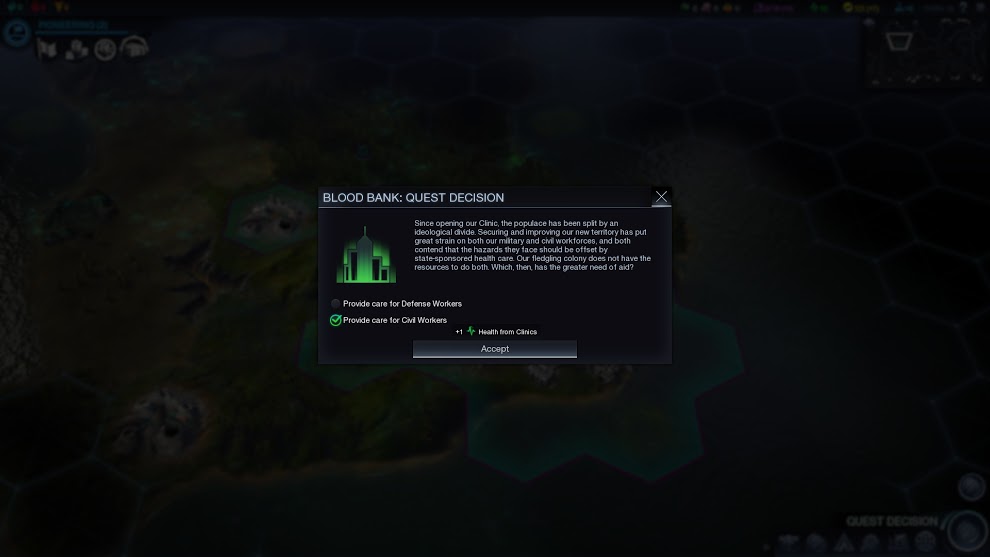 You’ll have to make “quest decisions”–one of the game’s major mechanical overhauls, which are lightly-themed choices you make about how to improve certain structures. Maybe the first time you’ll read the flavor text, but then you realize that hovering over the button that selects your choice tells you what the exact mechanical outcome is. “More food or more production?” You can just kind of sit there, do the mental math, and ignore the flavor text. It could very well be: “Your society has discovered it is extremely beneficial to subjugate the lesser races that came with us. Do you want them to be converted into nourishing mush, or slave labor?”
You’ll have to make “quest decisions”–one of the game’s major mechanical overhauls, which are lightly-themed choices you make about how to improve certain structures. Maybe the first time you’ll read the flavor text, but then you realize that hovering over the button that selects your choice tells you what the exact mechanical outcome is. “More food or more production?” You can just kind of sit there, do the mental math, and ignore the flavor text. It could very well be: “Your society has discovered it is extremely beneficial to subjugate the lesser races that came with us. Do you want them to be converted into nourishing mush, or slave labor?”
It doesn’t matter. You wouldn’t care; even if “your” civilization would never do that. You push the button that gives you the benefit that the calculus of mechanics tells you is the right one. Beyond Earth is sterile. Beyond Earth is aggressively anti-themed.
V. BEYOND THEME
Now we come full circle. Civilization is a game which asks you to embrace its theme wholeheartedly, and then through mastery of its systems–once you’ve decided that you enjoy them–the theme fades away and becomes irrelevant. It’s Chess, it’s Go, it’s Monopoly. You’re drawn in, and once you’re there to stay, it no longer needs to provide you the comforting, warm shroud of history that imparts the basic understanding that helps new players. But it’s always there for you.
Alpha Centauri pulls those mechanics together in a way which takes control away from the player–but which gives them a better understanding of how the elements outside their lived experience are going to affect the game. Yes, you will no longer specifically research a technology. But you’ll make broader decisions, not about the exact path through history, but an aspiration of what kind of society you want to make. Alpha Centauri is about the future in every possible way: The setting, the theme, and the mechanics. It’s aspirational, it’s about finding a path through the world to tame it, make sense of it, and ultimately destroy or coexist with it. Alpha Centauri passes no judgement on your path, and as the trappings of the world fall away, the mechanical abstractions are still there. Always guiding you.
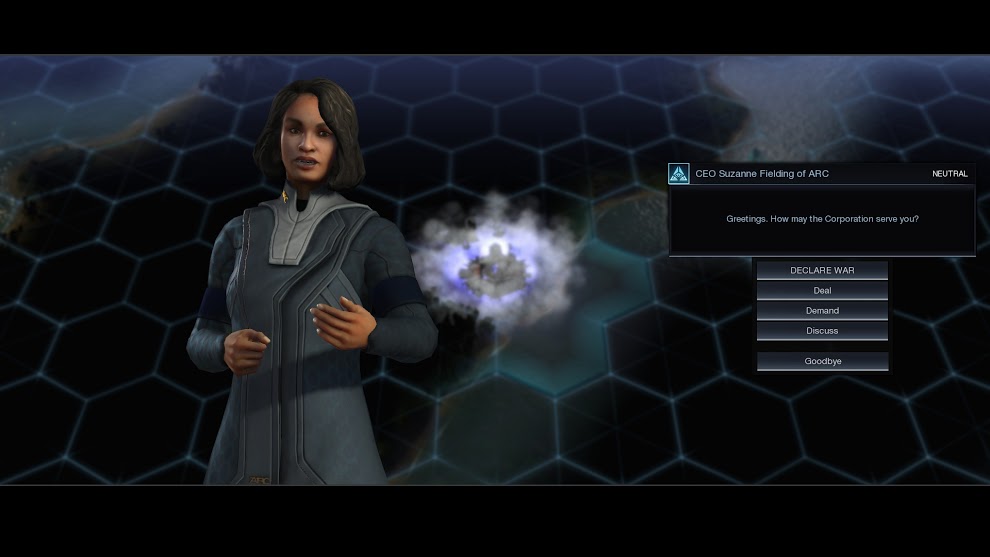 Beyond Earth wants it all. Beyond Earth wants the weight of the past, and a particular type of hope for the future, married together. It can’t have it, though. If I don’t know what benefits “Synthetic Thought” will give me, why would I research it outside of choosing it because of the pure mechanical benefits it would bring? As the leader of the Pan-Asian Cooperative, why does this CEO of a corporation hate me so much? She landed here after me; she should go stuff it and find some other planet to screw up.
Beyond Earth wants it all. Beyond Earth wants the weight of the past, and a particular type of hope for the future, married together. It can’t have it, though. If I don’t know what benefits “Synthetic Thought” will give me, why would I research it outside of choosing it because of the pure mechanical benefits it would bring? As the leader of the Pan-Asian Cooperative, why does this CEO of a corporation hate me so much? She landed here after me; she should go stuff it and find some other planet to screw up.
I hate this planet, I hate these people, I hate looking up everything I have to do because it’s utterly incomprehensible. There is nothing for me here except the mechanics. But somehow, even if I set plans in motion which will eventually allow me to construct a gigantic plant that for some reason causes my civilization to mind-meld with the planet itself (why?), I don’t care much about taking the next turn. I want to do it–I know that it would be satisfying to. But I can’t care about it. In a state of mental numbness I press NEXT TURN, because something better has to happen on the next turn, even if I have no clue why or what caused it. Usually it does. I think. I’m not entirely sure.
VI. BEYOND MECHANICS
I’ve always had a soft place in my heart for purely systemic games. I grew up playing chess alongside console games, and some of my earliest RPG experiences were those NES titles which had very little interesting in the way of story, but were all about their systems–Final Fantasy, for all its trappings, is a game purely about the tactical decisions one makes to travel between points A and B. Theme has always been just flavoring to me, with some rare exceptions.
As an adult, when I discovered board games, I was introduced to them through theme–Arkham Horror was my first purchase, because I love H.P. Lovecraft. But soon I was gravitating to the no-luck systems of eurogames, where themes matter so little that objects are represented by colored square cubes and no matter the fancy language of the game, it comes down to how those cubes are manipulated.
Civilization is a natural fit for somebody like me. There’s a reason I’ve constantly referred to the series in a reduction to its most basic 4X terms, rarely mentioned specifics, and written in depth about how the theming becomes irrelevant at higher levels of play–as it often does for well-constructed systemic games of extreme longevity.
There’s also a reason why I can’t describe Beyond Earth in terms of its mechanics. I know that they’re fundamentally the same–that they are, in fact, identical to the mechanics of Civilization 5, with the minor adjustments that one would expect from a robust expansion pack. The game is even extraordinarily well-balanced for a Civilization title at launch; I never felt as if I was able to exploit the games’ systems in an unintended way or that it was unfairly punishing me. But if you haven’t ever played a Civilization game, there isn’t a single point of reference for how to describe them. Not a single one. The game’s theme, design, naming schemes–none of them appear to have much, if any, of a cause-and-effect relationship.
I wrote about building the “Mind Flower” which gives a victory in the game. It is unlocked quite literally by completing a series of check boxes that seem to have nothing to do with constructing such a device and then using it to mind-meld with the planet. I completed them because this was the victory closest to the traditional Civilization “cultural” achievement–my preferred passive-aggressive way to dominate the planet in these games. But at no point, not one, did I get a sense I was advancing towards it, other than the numbers which would lead me to complete those check boxes going up. I had no grounding for anything I was doing, and so while I understood–intellectually–that the game was good, well-balanced, just a new shell around the same old setup that I’ve loved for years–I was not having fun.
It dawned on me. Even if I understood everything in the game at a mechanical level, there was nothing I could relate it to. There was nothing to draw me into this new experience. Theme in Civilization is more than just a coloring of the world to make it intelligible to new players who don’t know the mechanics of the series. What few identifiable thematic elements there were, I couldn’t begin to relate to–and they aggressively countered the way one would expect to mechanically interact with the world as the continuation of a highly advanced civilization from Earth. Beyond Earth, even if it was a Civilization game, didn’t understand what makes Civilization so great.
VII. NO MORE TURNS
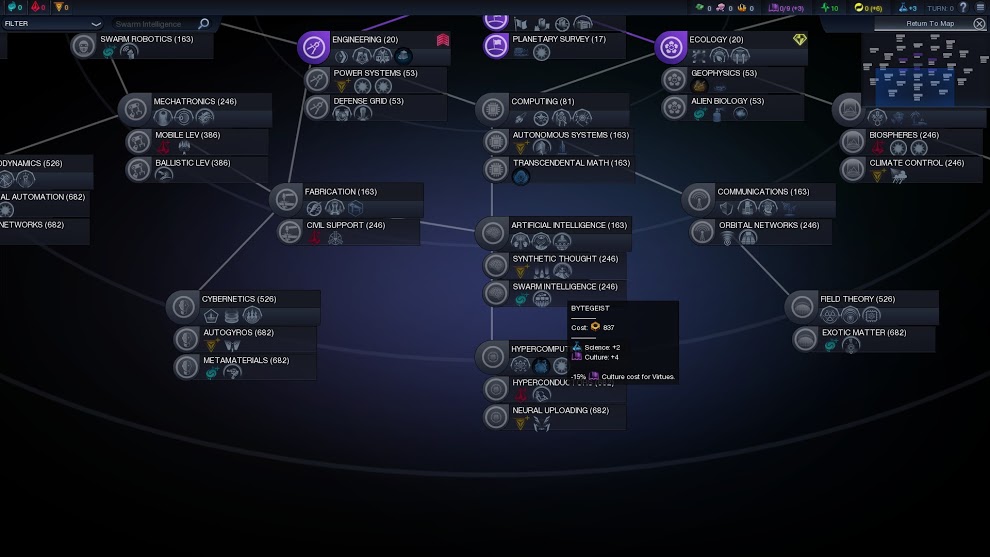 I eventually stopped playing.
I eventually stopped playing.
The wonder that I’d had in progress for the last 16 turns finally finished. I had no idea what it actually was, why it provided the benefits it did, or why researching “Swarm Intelligence” would unlock it. A blue box with a schematic of whatever-this-is showed up, with the benefits written beneath, and a poorly voice acted faux-quote of something meant to be inspirational or funny but which is actually just very embarrassing. At the top of this box, in large, sans-serif futuristic-looking letters: BYTEGEIST.
My girlfriend, who was watching me play, made a disgusted face. “Bytegeist?” she asked, in total disbelief.
“Oh. Yeah, Bytegeist.”
“I’m done with this.” She got up and left the room. I stopped playing myself a few minutes later. I’d built it because I needed the bonuses it provided, but not even those bonuses were enough to keep me engaged in a game where I never even noticed the idiotic name of the completely unintelligible nonsense thing I was building. I was done with it too, even though I knew that there was one more turn.

